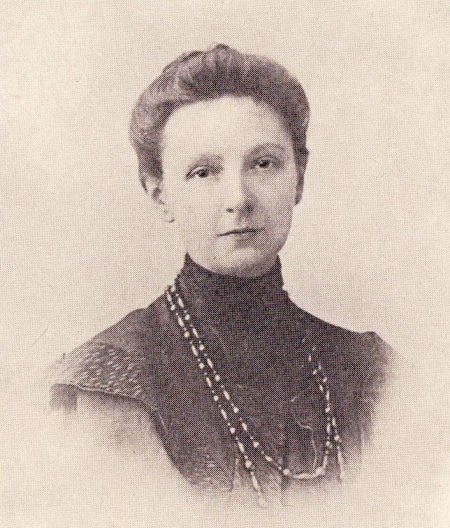
Wife, Convert, Socialite, Mystic, Lover of Beauty, Evangelist
Elisabeth Leseur
As a married woman and mystic whose prayer and suffering converted her atheist husband, Elisabeth Leseur is a compelling example of holiness lived in the context of marriage and in secular society. Raised in a wealthy Parisian home as the daughter of a distinguished lawyer, Elisabeth married Felix Leseur, a journalist and diplomat. Although they were unable to have children, their love was strong and Felix wrote, “She made the home into a center of warmth and gentility, where she frequently entertained friends.” Elisabeth was an attractive, lively, and joyful hostess with a great love for beauty.
A few years into their marriage, Elisabeth experienced a conversion that led her to embrace a hidden path of union with God in the environment of her marriage and social life. Her husband Felix, an atheist, was involved in the anti-Catholic movement, along with many friends who were hostile to the faith. He regularly attacked and criticized Elisabeth’s religious beliefs, causing her intense suffering which she offered up for his conversion. In addition to this emotional and spiritual sorrow, Elisabeth suffered from many physical ailments, including liver problems, typhoid fever, and intestinal issues. She believed strongly in the redemptive value of suffering, stating “Suffering that is accepted and offered up is the best of prayers.”
“Let us love. Let our lives be a perpetual song of love for God, first of all, and for all human beings who suffer, love, and mourn. Let deep joy live in us. Let us be like the lark, enemy of the night, who always announces the dawn and awakens in each creature the love of light and life. Let us awaken others to the spiritual life.”
In between her illnesses, Elisabeth was involved in a variety of charitable works. She spent a great amount of time, money, and energy providing for the poor and needy through the efforts of Catholic Action. She also founded an affordable and respectable home for single working girls. Elisabeth was a source of spiritual counsel for many people with whom she met and corresponded. A prevalent theme of her spiritual life was total abandonment to God’s will and she wrote, “I desire to live only for God, to generously do all I can in his service, and above all to abandon myself entirely to his will.”
“I desire to live only for God, to generously do all I can in his service, and above all to abandon myself entirely to his will.”
Elisabeth developed breast cancer and suffered acute pain for ten months until her death at the age of 48 on May 3, 1914. After her death, Elisabeth’s writings were found and published, and they included her Journal, A Book of Resolutions, and The Daily Thoughts. Her husband Felix read his wife’s depictions of her prayer and thoughts, which gradually brought him to reconcile with the Catholic faith in 1915. Two years following the publication of Elisabeth’s Journal, he entered the novitiate of the Dominican order and was ordained a priest in 1923. Felix wrote, “Elisabeth, living in the world, fulfilled every duty of her state, and her example shows how it is possible, when one has the will and calls upon divine grace, to live an intense spiritual life and to practice the highest evangelical virtues in the midst of outward activity.”

